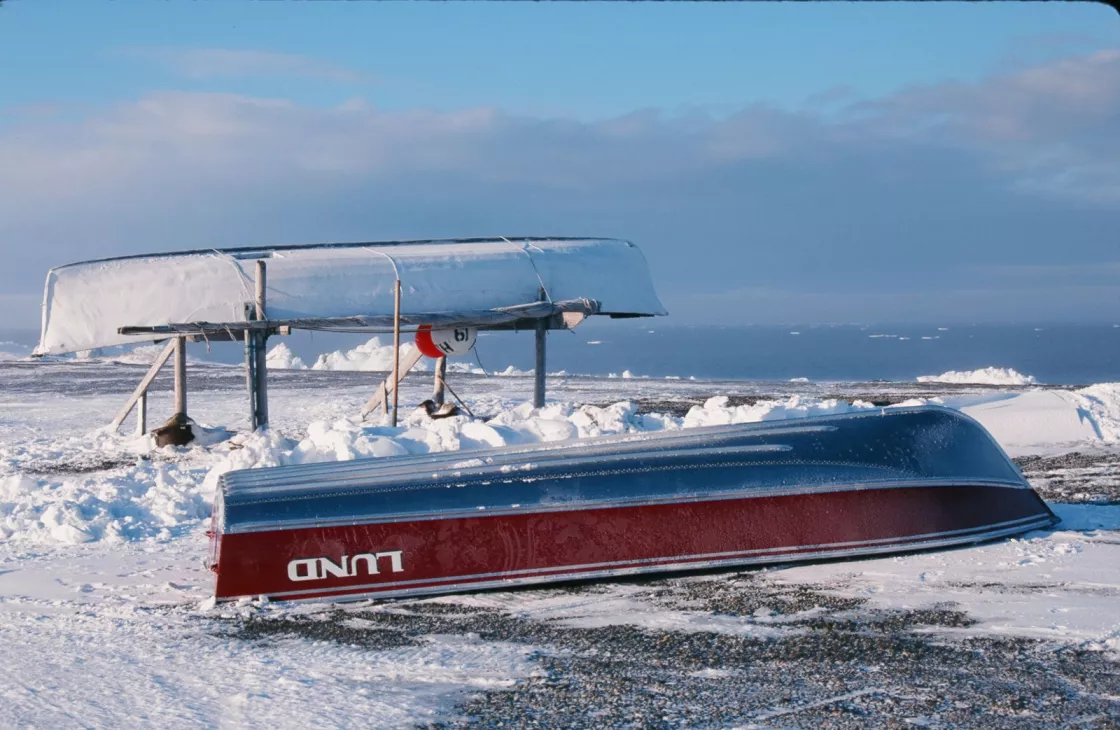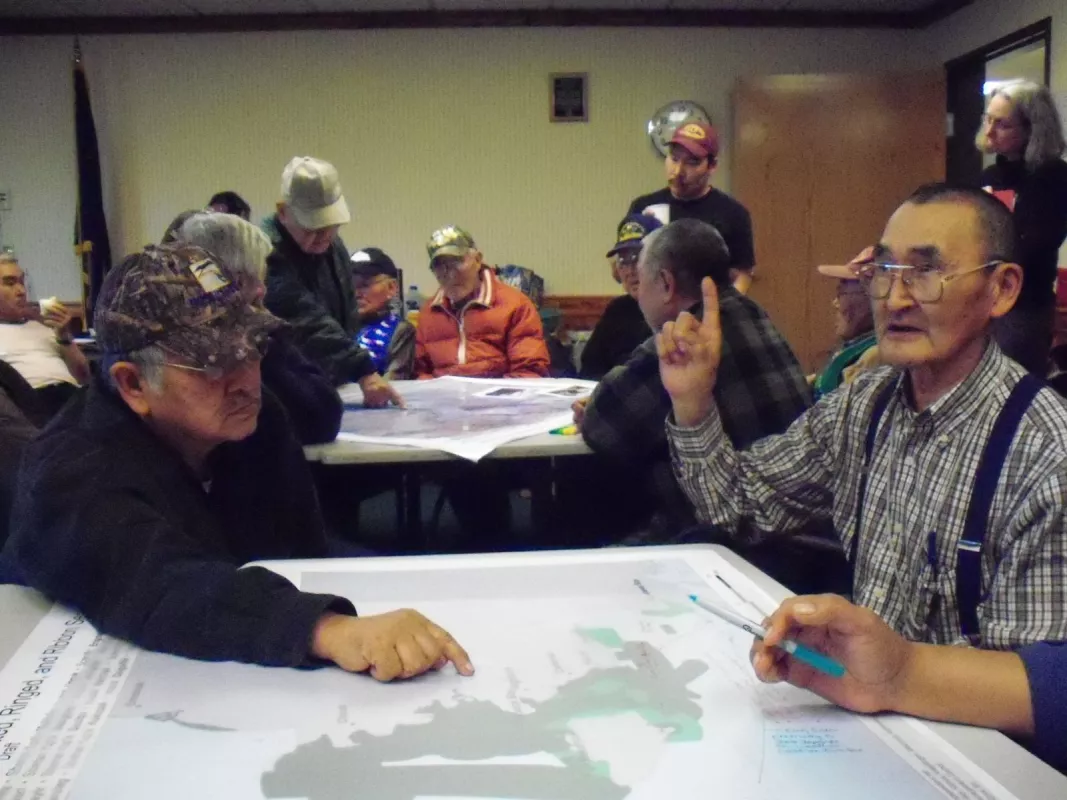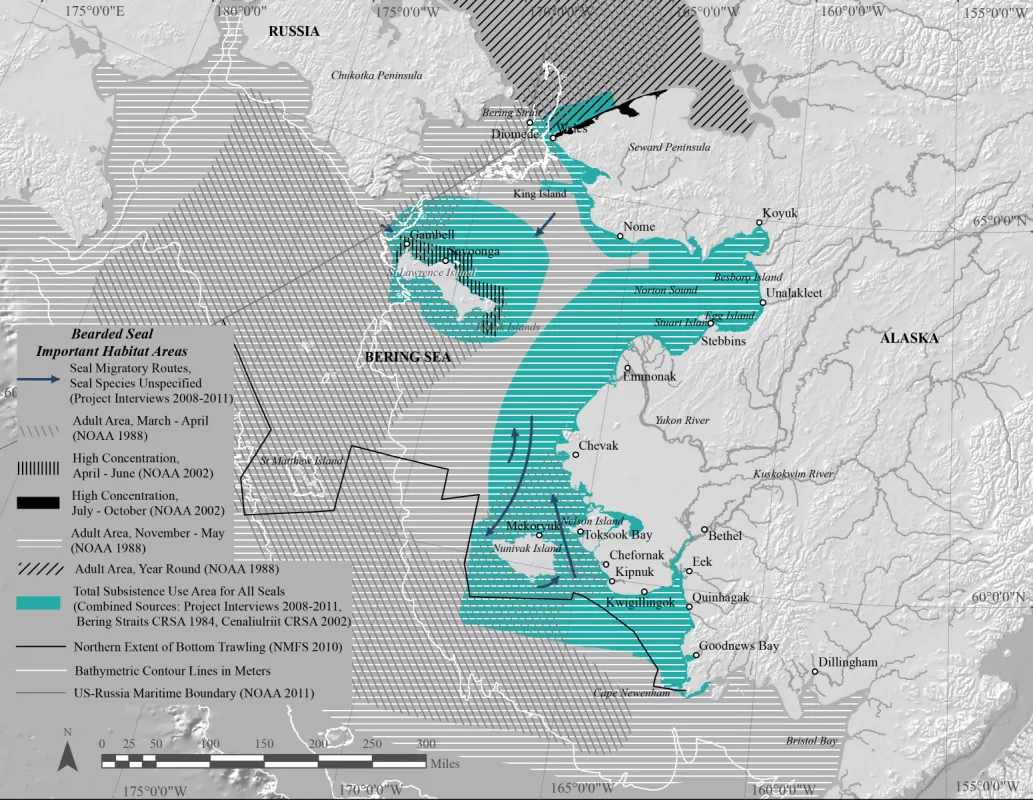By Agnieszka Gautier
Few Americans experience climate change as northern Alaskans do. Warming at twice the rate of lower latitudes, the Arctic has already warmed by three degrees Celsius. Many of whom rely on ancestral knowledge to live off the land, are facing a different future. “Our subsistence lifestyle is our culture,” said John Active, an elder from Bethel, who was quoted in the book The Northern Bering Sea: Our Way of Life.
The publication records ancestral and current connections to the ocean through archival and contemporary photographs, quotes from elders, and fishing and hunting area maps. The book informs decision-makers on the importance of the northern Bering Sea to tribal communities along the coast. But once print copies are gone, how can the book live on? As part of the solution, the Exchange for Local Observations and Knowledge of the Arctic (ELOKA), a project hosted at NSIDC, digitally illustrated the book and its materials and data.
A long-lasting impression
“The Elders want to help our young people and those who didn’t see the publication have access to this book because it shares a perspective important to our tribes,” said Fred Phillip, executive director of Bering Sea Elders Group and one of the elders involved in the project.
Bering Sea Elders Group formed in 2007 to address concerns about high-impact bottom trawl fisheries and the possibility of large-scale operations moving north with warming ocean temperatures. The group has connected elders from the Yukon-Kuskokwim and Bering Strait regions across western Alaska.
“We very much appreciate the publication having a home at ELOKA,” said Phillip. “It gives us a way to store the information we collected from our people and ensures it will be available for others to learn from.”
The ELOKA team worked closely with Bering Sea Elders Group personnel to transfer the publication into an interactive website, where viewers easily move between different sections much like flipping through a book. Graphic themes mirrored the elegance of the publication. And most importantly the maps—that overlay fishing and hunting areas with ecologically important areas—were preserved.
In addition to developing and hosting the website, ELOKA provides archiving and distribution services for the underlying map data. A protocol enables participating tribes to access these resources. “When we began this project, we made a commitment to the communities that the map data would be returned,” Phillip said. “It doesn’t belong to us. It doesn’t even belong to the Elders Group collectively, but to each tribe that contributed the data.”
The big picture
The fifteen maps contain data from interviews conducted with experts from eighteen tribes. They trace the migratory patterns of the Pacific walrus and different seal and whale species. They also display general areas for harvesting fish and shellfish, areas used for local small-scale commercial fisheries for halibut, herring, salmon, and crab, and important eider duck habitat.
The book project covered a large geographic region. “Research conducted by other organizations has documented more detailed spatial and traditional ecological knowledge, but the intent of our project was to tell an overall story of how the whole area matters to the continued successful hunting opportunities of villages and the cultural importance of the whole Bering Sea,” Phillip said. “It helps make the big picture accessible to decision-makers.”
If trends continue, northern Alaska will warm another six degrees Celsius by 2100. Climate change came up over and over again in interviews, though the book project was not set up to document the scope of local observations. “That is another reason we turned to ELOKA,” Phillip said, “because the information is so relevant to the change that is happening throughout our region.” With profound changes taking place in the Arctic, the sharing of cultural knowledge affords people the opportunity to adapt along with the animals they hunt. And where hunting and fishing will be successful in the future is where people will most likely need to follow.
References
Bering Sea Elders Group. 2011. The Northern Bering Sea: Our Way of Life. Available at www.eloka-arctic.org/communities/elders
http://www.newyorker.com/magazine/2016/09/12/fossil-fuels-and-climate-change-in-point-hope-alaska
https://www.ipcc.ch/publications_and_data/ar4/wg1/en/spmsspm-projections-of.html


